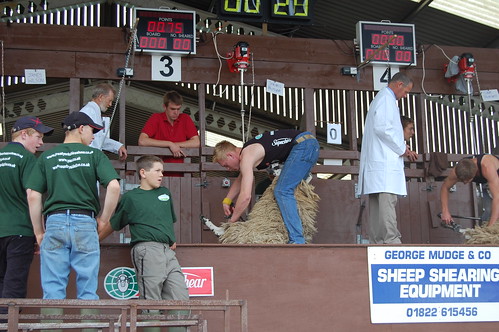 ost unacceptable and dangerous actions a player can carry out in the game. Yet Peter De Villiers, the Springbok coach, appeared to make comments that justified Burger's actions. He retorted to those complaining about the over-aggressiveness of the South African players which also left Lions prop, Adam Jones with a dislocated shoulder from a dangerous tackle, "why don't we all go to the nearest ballet shop and get some nice tutus, get a great dancing show going on, no eye-gouging, no tackling, no nothing and then we will all enjoy it. There will be collisions in rugby and I will always pick the hardest guy. If people want to make it soft because we won a series, I cannot do anything about it." (Rees, The Guardian)
ost unacceptable and dangerous actions a player can carry out in the game. Yet Peter De Villiers, the Springbok coach, appeared to make comments that justified Burger's actions. He retorted to those complaining about the over-aggressiveness of the South African players which also left Lions prop, Adam Jones with a dislocated shoulder from a dangerous tackle, "why don't we all go to the nearest ballet shop and get some nice tutus, get a great dancing show going on, no eye-gouging, no tackling, no nothing and then we will all enjoy it. There will be collisions in rugby and I will always pick the hardest guy. If people want to make it soft because we won a series, I cannot do anything about it." (Rees, The Guardian)Whilst De Villiers has been condemned for seeming to condone foul, and potentially very harmful play, arguably the issue behind all of this is not the manner of the action but the matter of consent. Although there are those that would take a paternalistic stance and say that individuals should not be allowed to consent to the possibility of being eye-gouged, the libertarian position states that if 'rational' 'autonomous' adults do agree to be party to such things then that is their perrogative. So for those players that wish to punch, bite and eye gouge they should be free to participate in a sport that allows such things. In the same way, individuals who do not wish to be tackled or the recipient of other physical contact (as defined according to the laws of rugby) should not play that game (they may, as De Villiers suggested, wish to go dancing instead). The relevant issue here is that in the sport of rugby, players are not consenting to being on the receiving end of particular actions like the one received by Fitzgerald and therefore it is wholly unacceptable for any player to carry (or attempt to carry) those actions out. Rather than encouraging foul and dangerous play (in a win-at-all-cost mentality), coaches have a moral duty to ensure that their players recognise that the matter of consent is intrinsic both to the good of the game and to the development of themselves as moral citizens. This is why De Villiers' comments were tasteless at best, and immoral at worst.

